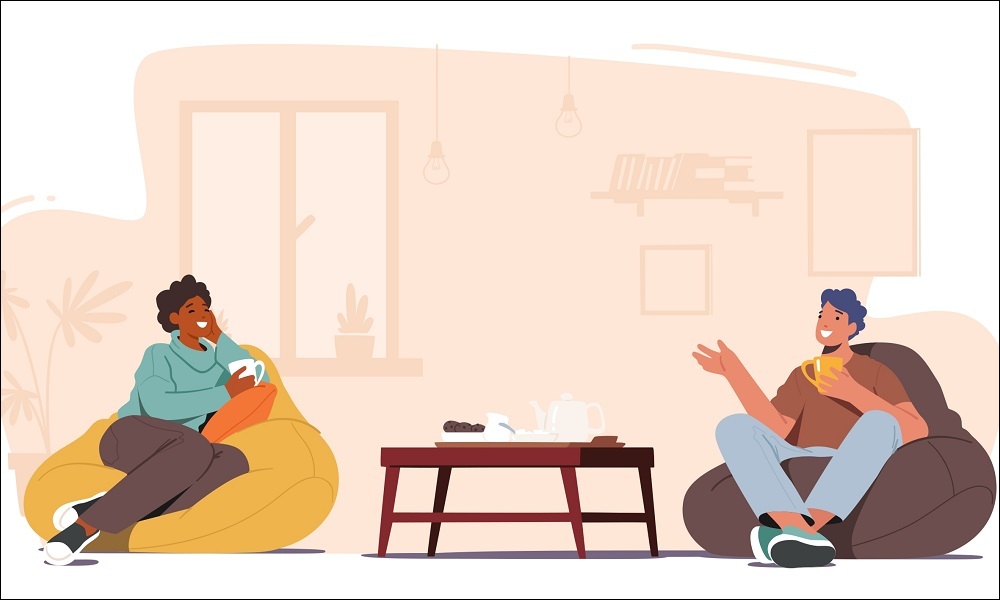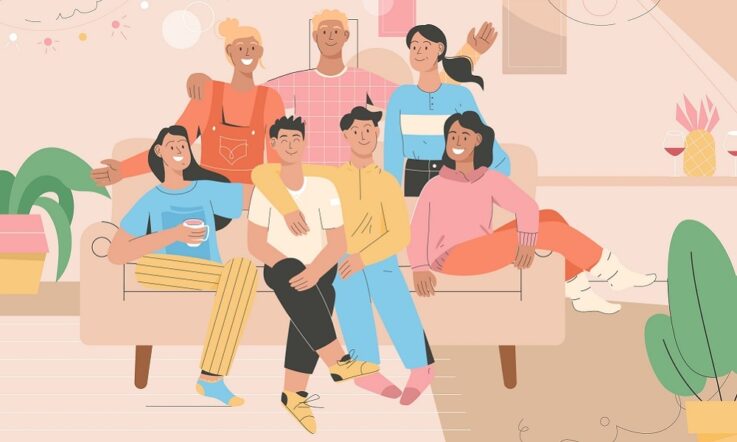It’s Men’s Health Week this week in Australia, and in this article, we speak with Dr Brendan Quinn from the Australian Institute of Family Studies (AIFS) about an Australian longitudinal study into men’s health and its findings related to the social connectedness of males.
When you think about how socially connected you are, do you feel fulfilled, or do you have a desire to connect more with others?
If you’d like to increase your levels of social interaction, you’re not alone. Research shows that social connectedness is an important part of our overall health and wellbeing, and that it can be more common for men to have low levels of social connectedness than women.
‘National research in Australia has shown that males are typically less socially connected than females. For example, there are typically more males who are lonely and less integrated in the community,’ Dr Brendan Quinn, Public Health Research Fellow in the Family, Society and Lifecourse Program at AIFS, shares with Wellbeing by Teacher.
Quinn primarily works on Ten to Men: the Australian Longitudinal Study on Male Health. It’s a study that began in 2013 with 16 000 participants aged between 10 and 55-years-old. It’s one of the biggest studies of male health in the world and presents unique insights into the levels of social connectedness experienced by males in Australia.
The research team aim to survey the same participants every few years. They have completed three survey cycles so far where participants have been asked about various aspects of their health, like mental ill-health, chronic health conditions, and risk behaviours (such as gambling and drug use). Participants are also asked about their perceived levels of social support.
How levels of social support can impact our health
‘The research that we did for Ten to Men shows that there's a bidirectional relationship between depression and self-perceived social supports,’ Quinn shares. ‘So, having low self-perceived social support is associated with greater experience of depression, and experience of depressive symptoms is also associated with low levels of social support. They have that longitudinal and bidirectional relationship with each other.’
Other research, he says, has shown that being socially disconnected can impact our physical health as well as our mental health. ‘[It can be] associated with general physical health issues like obesity and cardiovascular disease and sleep problems. And in terms of mental health and risk behaviours, being less socially connected is associated with anxiety and suicidality, and problematical or harmful use of alcohol or other substances’.
Strategies for increasing your levels of social connectedness
There are many ways men can become more integrated in their community and socially connected with others. For example, you might like the idea of volunteering in your community, joining a community sport club, or reaching out to another community-based group like Men’s Shed and Apex Australia.
If these options all sound a bit daunting, connecting with others online can also be a good option. ‘There are a whole bunch of online platforms where people can chat to other like-minded people,’ Quinn says. ‘There are so many positive mechanisms and avenues that people can pursue that can facilitate that remote social support.’
Supporting men in your life to be more socially connected
If you’ve identified a male in your life who you’d like to help access more social supports, Quinn recommends that a good starting point is to educate yourself about the resources available. This might involve doing some research about what is available for them in their local area (or online community) so they can engage in their interests and hobbies with others.
‘I think one of the first things to do is to talk about it and try to just address that stigma. A lot of men might be apprehensive about accessing both health and social support services.
‘Especially after the last two years that we've had where most of us in Australia have been, at some point, distanced from the people that we care about and the people that we love due to pandemic restrictions. So, it is normal to feel those low levels of social connectedness and social support. A lot of us are feeling it so it's okay to talk about it.’





